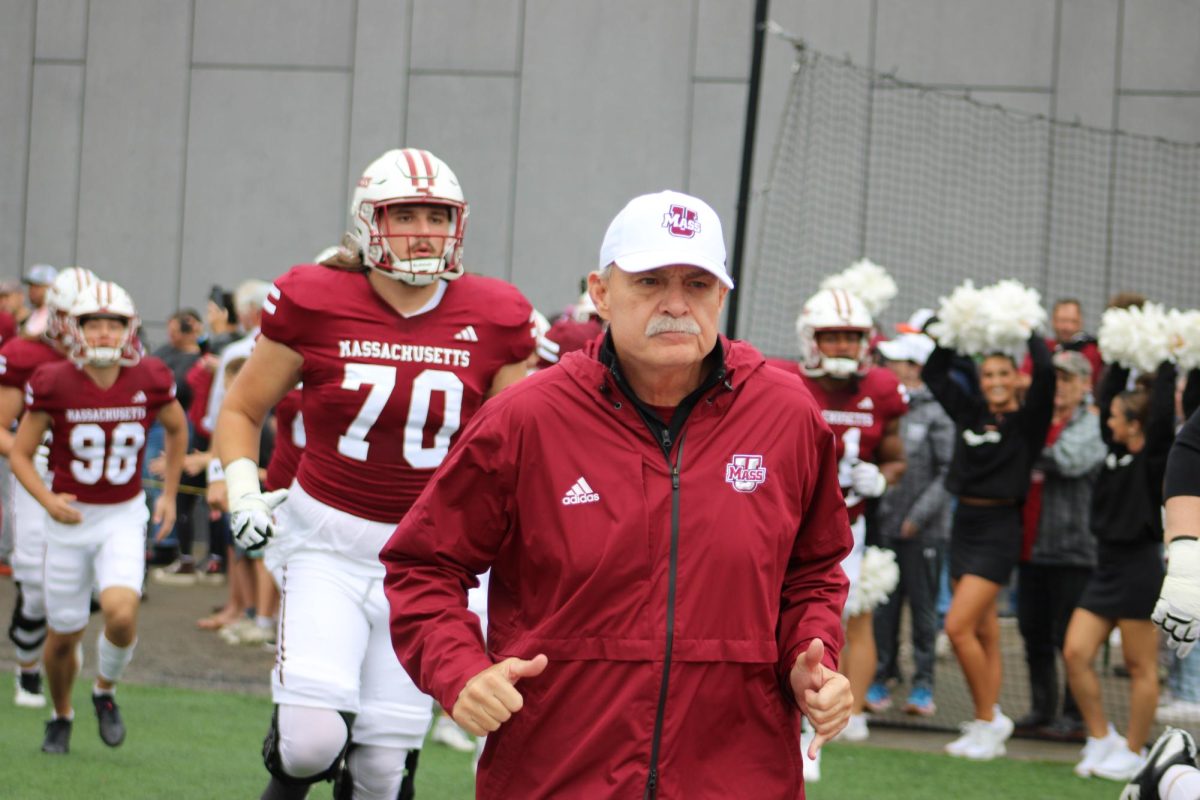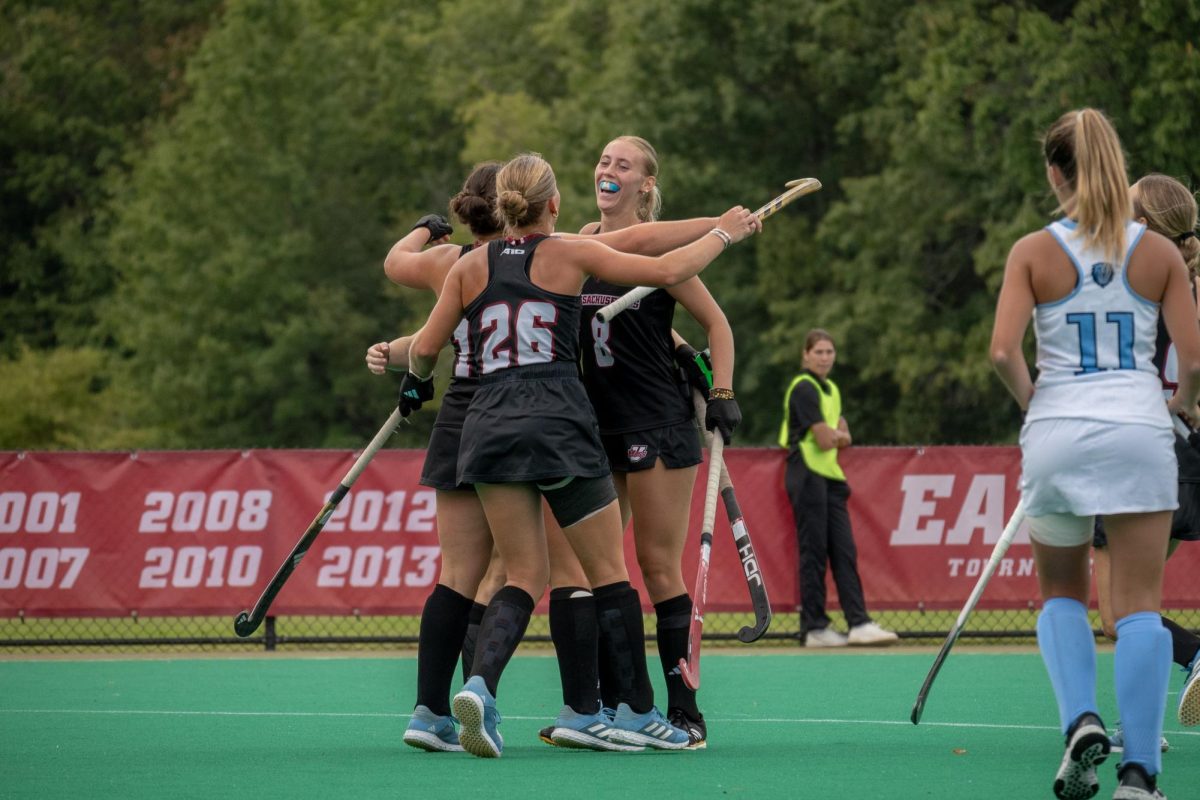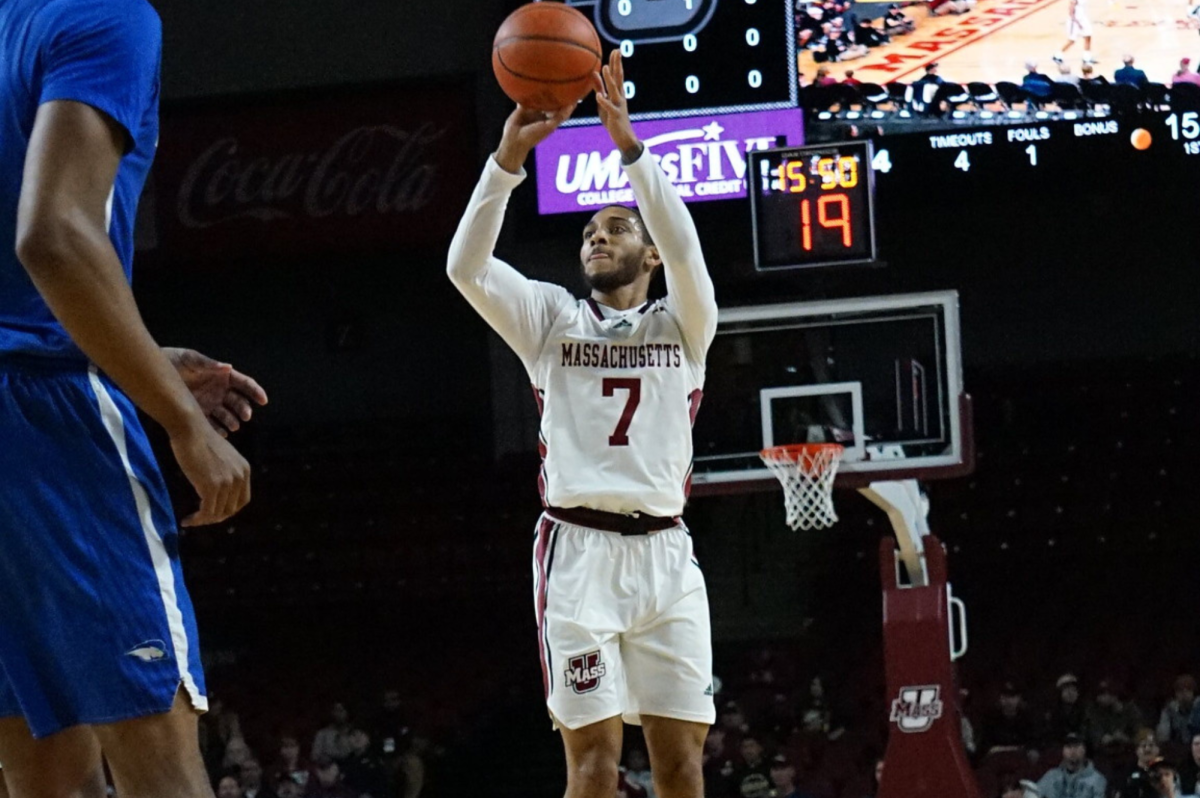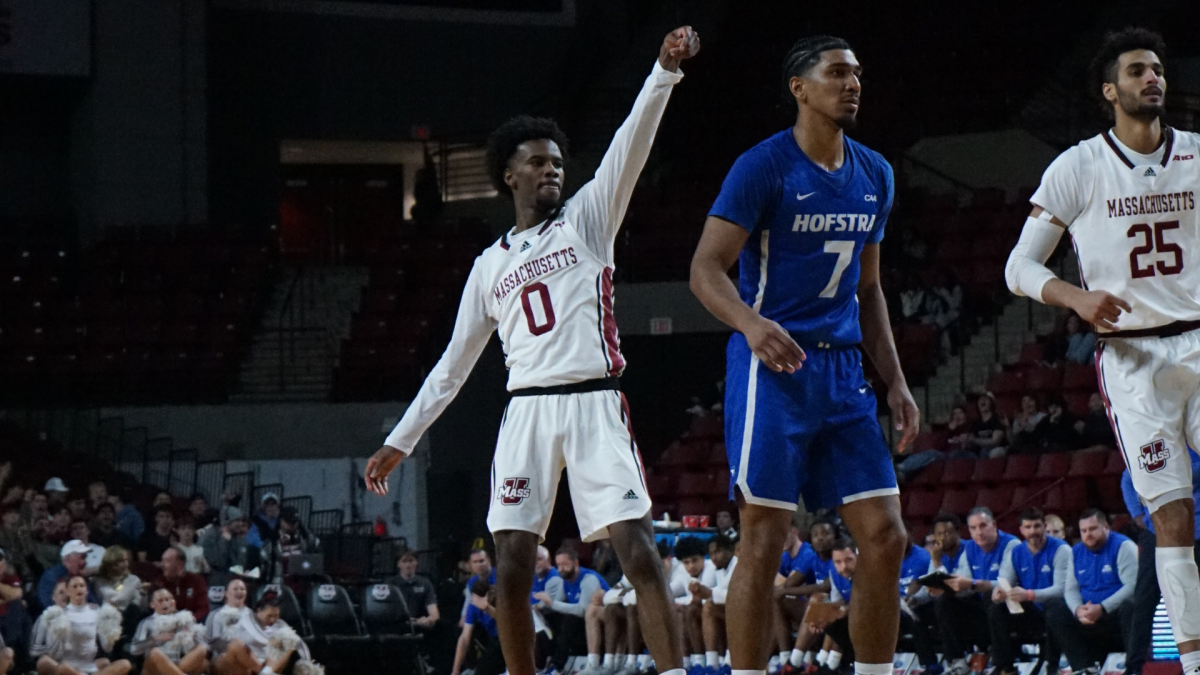
The end of a memorable tenure appears near for Massachusetts tennis coach Judy Dixon.
Dixon has entered her 23rd season as UMass’ coach and has already cemented herself in the record book as the all-time winningest coach in program history.
Now, with her career slowly reaching its end, Dixon looks to finish her career with the Minutewomen on top.
UMass (5-4) opened up the spring half of its season with three consecutive losses, but the Minutewomen have managed to get back to their winning ways with a four-game winning streak capped off by a 7-0 sweep over conference foe St. Bonaventure this past weekend.
“Other programs might think differently, but after how close we came last year our only goal is to win the A-10 outright to get back the NCAA tournament,” Dixon said.
UMass was mere minutes away from an A-10 championship following their 2014-2015 campaign. An untimely injury to Chanel Glasper ended the Minutewomen’s hopes and they finished runner up to conference champion to Virginia Commonwealth, which won its third consecutive league title.
With that experience fresh on her mind, Dixon recalls her most memorable run as the head coach of the Minutewomen.
“Well a few things come to mind, but first and foremost was our first A-10 championship win back in 2001. Nothing trumps the pride you feel competing in the NCAA tournament and to see the joy we had playing together was something I’ll never forget,” Dixon said.
Perhaps Dixon’s most key contribution to UMass tennis is the fact that she was chosen to help revive a program that had essentially been disbanded more than two decades ago.
In 1991, then-athletic director Glenn Wong called Dixon with the intent of offering her a position that would have her oversee the rebirth of the tennis program at UMass.
“Glenn has always been a close friend of mine and he called me with an offer to head UMass’ new program,” Dixon recalled. “It was only supposed to be a one-year deal but obviously here I am 23 years later and I don’t regret it.”
According to Dixon, her greatest contribution to the school was helping to build a program back from the dead into a perennial conference contender.
“When I look back at all that I’ve done, I think I’ll take immense satisfaction in knowing that we were able to develop not only a team, but a system,” Dixon said.
From 1993-2001, Dixon agreed to simultaneously coach the men’s tennis team, capping her run with a 95-90 record to go along with a New England Championship to end the 1997 campaign.
“It was a little more work to coach both teams obviously, but in my personal opinion men are much easier to coach then women. You can be a little more direct with men, because women tend to be a little more relational,” Dixon said.
Before coming to UMass, Dixon was the coach of Yale’s tennis team, helping lead the Bulldogs to an Ivy League Championship in 1975, her final year with the program before coming to the Minutewomen.
According to Dixon, the two leagues are polar opposites of each other. At an Ivy League school, athletes recruited are offered “packages” similar to an athletic scholarship, but with one key difference – the athlete can leave the team at any point while retaining their package.
This creates a little more difficulty when it comes to recruiting and building a team. Additionally, athletes competing at Ivy League schools tend to be juggling a more difficult workload off the court.
“These kids are facing a lot of pressure to succeed academically, coupled with the fact that Ivy leagues truly only care about one thing: beating the other Ivy League schools,” Dixon said.
While the end of her tenure may be approaching at the helm of the Minutewomen, Dixon’s competitive fire has not dimmed yet. And although Dixon doesn’t know if this will be her last season coaching, the goal of taking the next step up from last season and capturing an A-10 championship, remains the same as UMass continues its spring campaign.
Chris Martinez can be reached at [email protected].


















